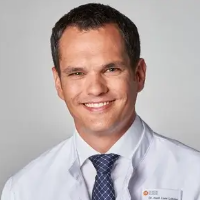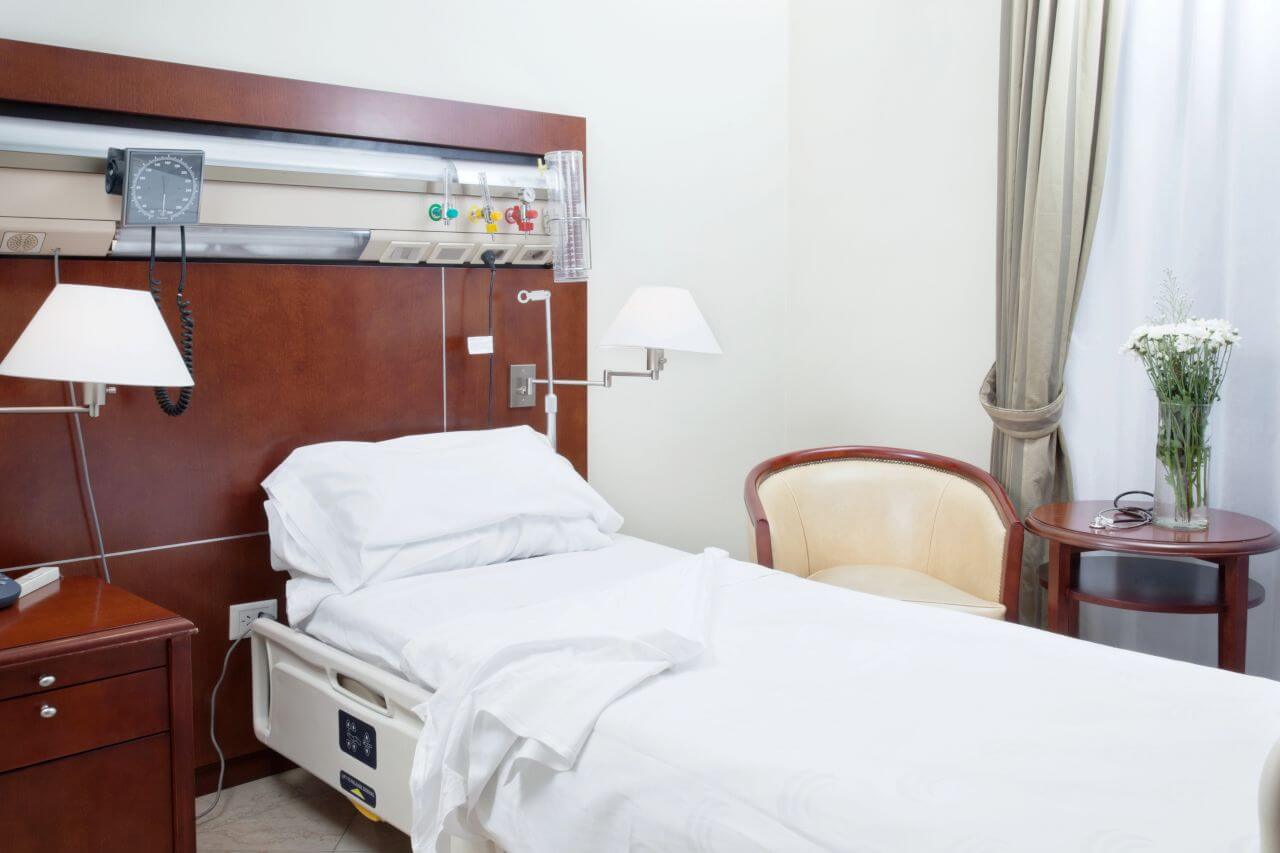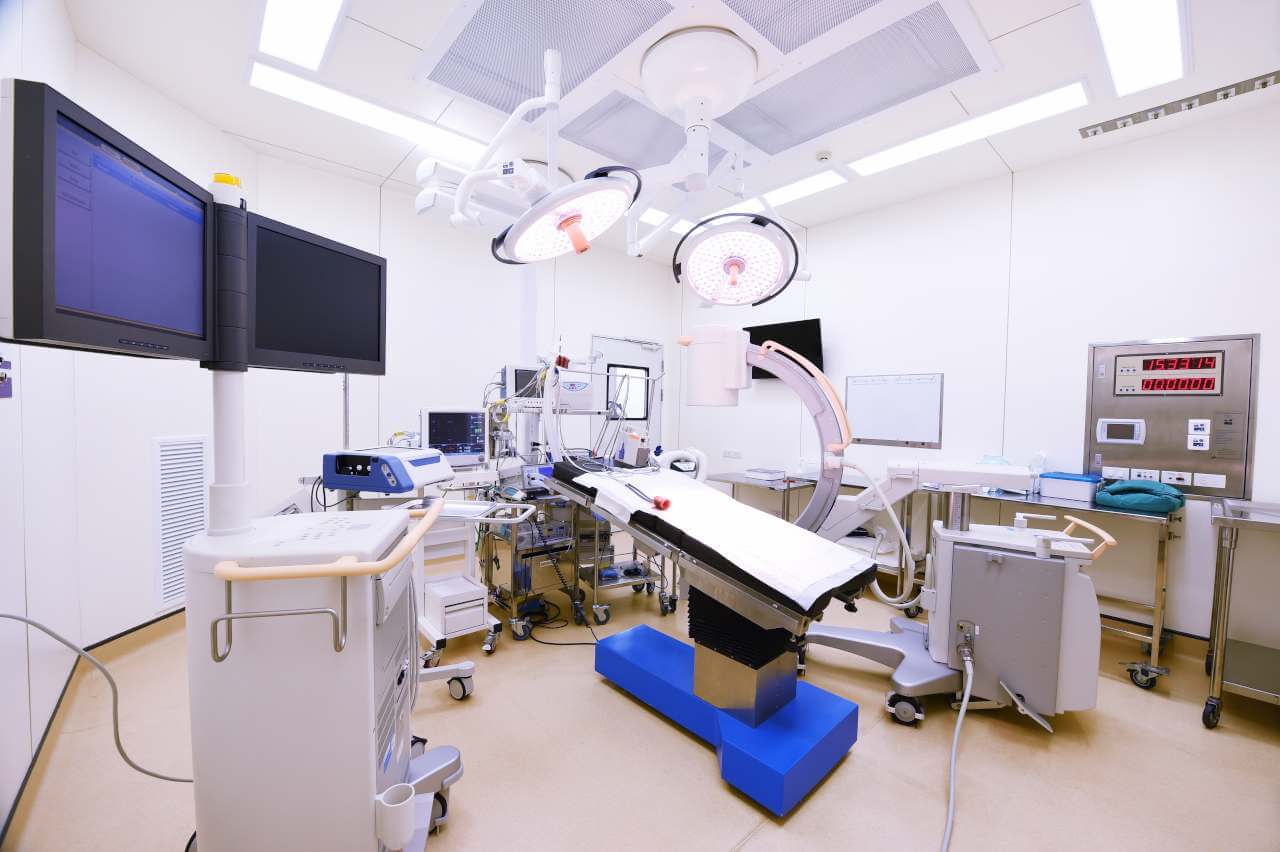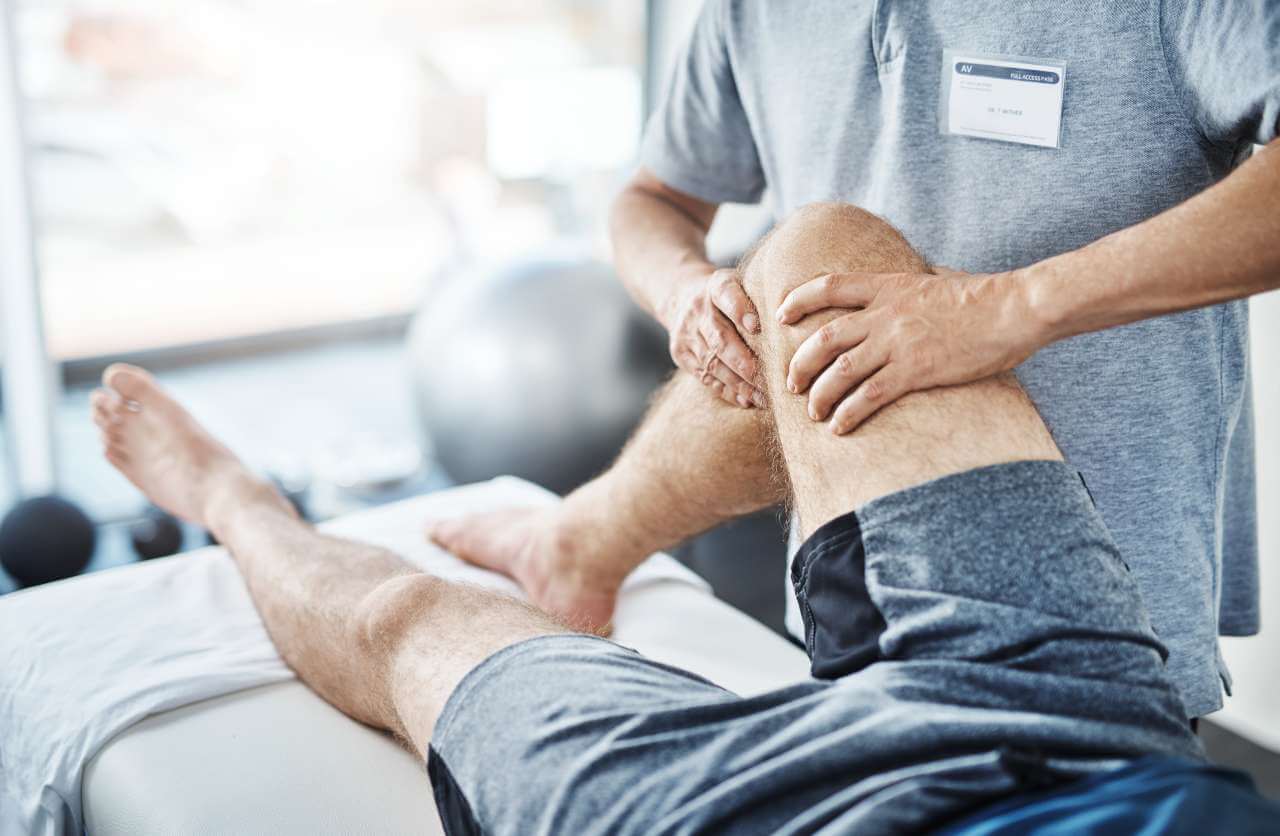
The program includes:
- Initial presentation in the clinic
- clinical history taking
- physical examination
- review of medical records
- laboratory tests:
- complete blood count
- biochemical analysis of blood
- TSH-basal, fT3, fT4
- indicators of inflammation (CRP, ESR)
- indicators blood coagulation
- ultrasound/ CT/ MRI
- preparation according to preoperative standard
- neurinoma resection
- symptomatic treatment
- control examinations
- the cost of essential medicines and materials
- nursing services
- full hospital accommodation
- explanation of future recommendations
- written statement
Required documents
- Medical records
- MRI (if available)
Service
You may also book:
 BookingHealth Price from:
BookingHealth Price from:
About the department
According to the reputable Focus magazine, the Department of Spinal Surgery at the Schoen Clinic Duesseldorf is included in the ranking of the best medical facilities in Germany specializing in spinal surgery!
The department offers all conservative and surgical treatments to patients with spinal pathologies. The focus of the department's doctors is on patients with herniated discs, spinal stenosis, spondylolisthesis (slipped vertebral bodies), spinal instability, spinal fractures, scoliosis and kyphosis, benign and malignant spinal tumors, and rheumatic spinal lesions. If clinically indicated, doctors at the medical facility strive to carry out conservative treatment, with surgery being the last-line treatment. The department's surgeons work in operating rooms fitted with high-tech equipment for performing minimally invasive and endoscopic interventions. The goal of the specialists is to provide the most sparing treatment possible and enable the patient to lead a full life without any pain or restrictions. The department is certified by the German Spine Society (DWG) as a specialized Center for Spinal Surgery. It is worth mentioning that such certification is only awarded in Germany to leading specialized medical institutions with high treatment success rates. The department's spinal surgeons follow the principles of personalized medical care so that each patient can receive an individual treatment regimen that takes into account his or her needs and wishes. The department is headed by Dr. med. Lars Löhrer.
The department's medical team has exceptional professional experience in the treatment of herniated discs, a rupture of the fibrous ring of the intervertebral disc and displacement of its internal part beyond its natural location against the background of degenerative changes in the cervical, thoracic, or lumbar spine. The department's physicians most often deal with the treatment of lumbar disc herniation. The main manifestation of a hernia is intense pain, which is present even at rest as the pathology progresses. At the diagnostic stage, the attending physician studies the patient's medical history, listens to his or her complaints, and conducts a clinical examination, after which imaging tests will be performed. As a rule, the patient is prescribed magnetic resonance imaging and/or digital X-ray scanning. In rare cases, a computed tomography (CT) scan may be required. As for the treatment of herniated discs, the department always prescribes it on an individual basis. The specialists have many effective conservative therapeutic methods at their disposal, including physiotherapy, drug therapy, and infiltration therapy. Surgery for herniated discs can often be avoided, as doctors conduct successful conservative treatment in more than 90% of cases. However, the department's spinal surgeons still have to operate on patients with hernias in some cases. Surgical procedures of this kind are performed using endoscopic and minimally invasive techniques, so the patient's recovery in the postoperative period takes a matter of days, and the risks of complications are almost zero. The department's team of surgeons annually treats thousands of patients with herniated discs, and each of them receives effective medical care. The doctors deservedly enjoy a reputation as one of the best experts in their field of competence in Germany and far beyond its borders.
Another common diagnosis is spinal stenosis, a narrowing of the spinal canal that causes compression of the spinal cord structures. The pathology causes severe pain, sensory disturbances, muscle weakness, and deterioration of motor skills. Without timely treatment, the pain intensifies, it becomes difficult for the patient to overcome long distances, and gait disturbances develop. In addition, patients with spinal stenosis often complain of numbness and/or tingling. The therapeutic process begins with an individual consultation with a spinal surgeon, who listens to the patient's complaints and conducts a clinical examination. Next, the patient will have to undergo imaging diagnostics. The most informative diagnostic method is MRI but a CT scan may also be used in some cases. The department's doctors also often prescribe electromyography and electroneuromyography. Should the diagnosis of spinal stenosis be confirmed, an individual treatment regimen will be developed for the patient. In the early stages, doctors give preference to conservative treatment, and in complex cases, surgical intervention is recommended. The conservative treatment regimen is based on painkillers, physiotherapy, and manual therapy. If necessary, multimodal pain management can be carried out, and psychologists may be involved in the therapeutic process. For severe pain relief, the department's physicians may conduct periradicular infiltration under imaging guidance. If conservative methods do not give the desired result or their use is inappropriate due to the severity of the pathological process, surgery becomes the only effective treatment method. Operations for spinal stenosis are most commonly minimally invasive, but if indicated, microsurgical or endoscopic procedures may also be performed. Operations are performed under general anesthesia. A few hours after the surgical procedure, the patient can stand on his or her feet. There is no need to wear a corset or other fixing devices.
The department's medical team also regularly treats patients with spondylolisthesis, in which the vertebrae slip out of their place. The pathology usually affects the lumbar vertebrae, and the patient suffers from severe back pain. To confirm the diagnosis and determine the optimal treatment tactics, the department's specialists perform a clinical examination, followed by an MRI. Myelography (contrast-enhanced X-ray scanning) or CT myelography may be an alternative to MRI. In some cases, electromyography may also be recommended. In more than 90% of cases, the department's spinal surgeons manage to eliminate spondylolisthesis with comprehensive conservative treatment, which is based on painkillers, muscle relaxants, therapeutic exercises, and physiotherapy. To improve back muscle tone, the department's doctors recommend swimming, Nordic walking, and cycling. A healthy diet plays an important role because excess weight increases the load on your back. In complex clinical cases, conservative therapy may be ineffective, so the specialists consider the advisability of surgery. The essence of surgical treatment is to stabilize the vertebra by implanting special screws, rods, and/or plates.
The department's range of medical services includes the following:
- Conservative and surgical treatment of herniated discs
- Conservative and surgical treatment of spinal stenosis
- Conservative and surgical treatment of spondylolisthesis
- Conservative and surgical treatment of spinal instability
- Conservative and surgical treatment of spinal fractures and other traumatic injuries, including osteoporotic spinal fractures
- Conservative and surgical treatment of scoliosis and kyphosis
- Conservative and surgical treatment of benign and malignant spinal tumors
- Conservative and surgical treatment of chronic back pain
- Conservative and surgical treatment of spinal infectious diseases
- Conservative and surgical treatment of rheumatic spinal lesions
- Conservative and surgical treatment of other spinal diseases
Curriculum vitae
Professional Career
- Since 2017 Head Physician, Department of Spinal Surgery, Schoen Clinic Duesseldorf.
- 2012 - 2017 Senior Physician, Department of Orthopedics and Trauma Surgery, University Hospital Cologne.
- 2011 - 2017 Physician, Department of Orthopedics and Trauma Surgery, University Hospital Cologne.
- 2007 - 2011 Physician, Department of Trauma Surgery, Hand Surgery and Reconstructive Surgery, University Hospital Muenster.
Clinical Interests
- Treatment of herniated discs.
- Treatment of ankylosing spondylitis.
- Treatment of chronic back pain.
- Treatment of spondylodiscitis.
- Treatment of spinal stenosis.
- Treatment of vertebral fractures, including osteoporotic ones.
- Treatment of osteochondrosis.
- Correction of scoliosis and kyphosis.
Certificates
- Master's Certificate from the German Spine Society (DWG).
Memberships in Professional Societies
- German Spine Society (DWG).
- German Society for Orthopedics and Orthopedic Surgery (DGOOC).
- AOspine.
- German Society for Manual Medicine (DGMM-MWE).
Photo of the doctor: (c) Schön Klinik Düsseldorf
About hospital
According to the reputable Focus magazine, the Schoen Clinic Duesseldorf is one of the top medical facilities in North Rhine-Westphalia and is also one of the best Spinal Surgery Centers in Germany.
The Schoen Clinic Duesseldorf is recognized as a leading medical facility that provides high-quality medical care with an emphasis on a humane attitude and understanding of each patient's individual needs. The clinic offers a range of medical specialties, including orthopedics, trauma surgery, spinal surgery, otolaryngology, cardiology, internal medicine, angiology, and vascular surgery.
Patients' health is in the safe hands of a highly qualified team of more than 590 physicians and nurses. The clinic treats more than 48,000 patients annually, which is a testament to the high level of patient satisfaction with medical services.
The clinic has a comfortable infrastructure, including modern diagnostic rooms, laboratories, an emergency medical care unit, therapeutic rooms, and operating rooms adapted for low-traumatic surgical interventions. It is worth noting that the clinic has a Center for Arthroplasty that is certified according to the EndoCert standards by the German Society for Orthopedics and Orthopedic Surgery (DGOOC). This is the most prestigious certificate in this medical field in Germany.
The Schoen Clinic Duesseldorf provides comprehensive medical care in accordance with international clinical standards, always taking into account the individual needs and wishes of each patient. The doctors strive to provide patients with the most effective and sparing treatment possible using the very latest therapeutic techniques.
Photo: (с) depositphotos
Accommodation in hospital
Patients rooms
Patients of the Schoen Clinic Duesseldorf live in comfortable single and double rooms designed in light colors. The rooms are furnished with a comfortable, automatically adjustable bed with an orthopedic mattress, a wardrobe, a table and chair, a TV set, a telephone, a mini-fridge, and a safe. Each patient room has an ensuite bathroom with a shower and toilet. The bathroom has changeable towels, a hairdryer, toiletries, and a bathrobe.
Meals and Menus
The patient and his accompanying person are offered three meals a day: breakfast, lunch, and dinner. The patient and his accompanying person have a choice of three set menus daily.
If, for some reason, you do not eat all the foods, you will be offered an individual menu. Please inform the medical staff about your dietary preferences prior to treatment.
Further details
Standard rooms include:
![]() Toilet
Toilet
![]() Shower
Shower
![]() Wi-Fi
Wi-Fi
![]() TV
TV
Accompanying person
Your accompanying person may stay with you in your patient room or at the hotel of your choice during the inpatient program.
Hotel
You may stay at the hotel of your choice during the outpatient program. Our managers will support you for selecting the best option.





